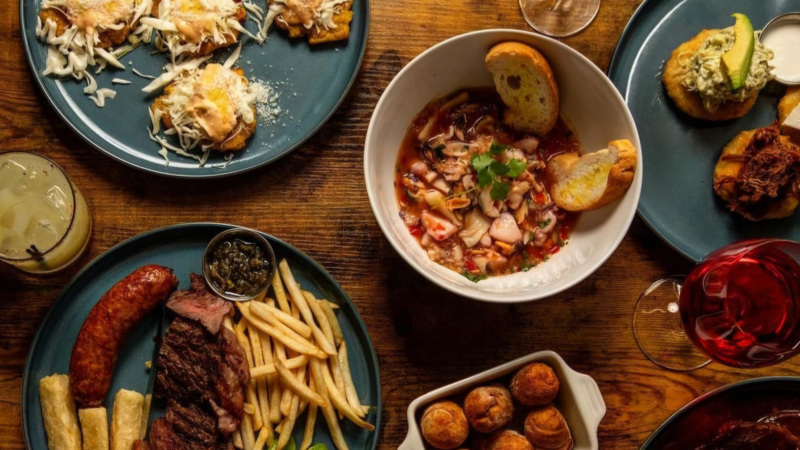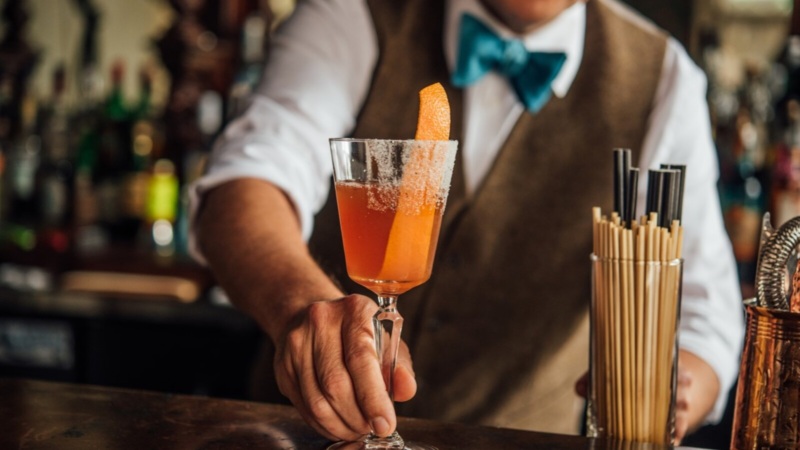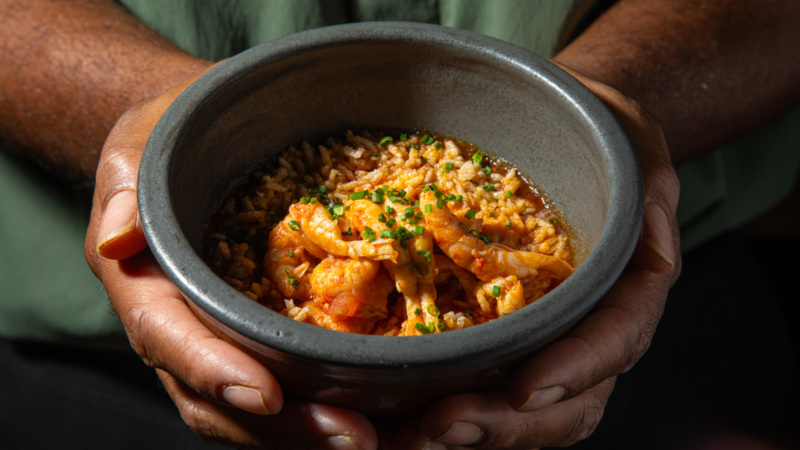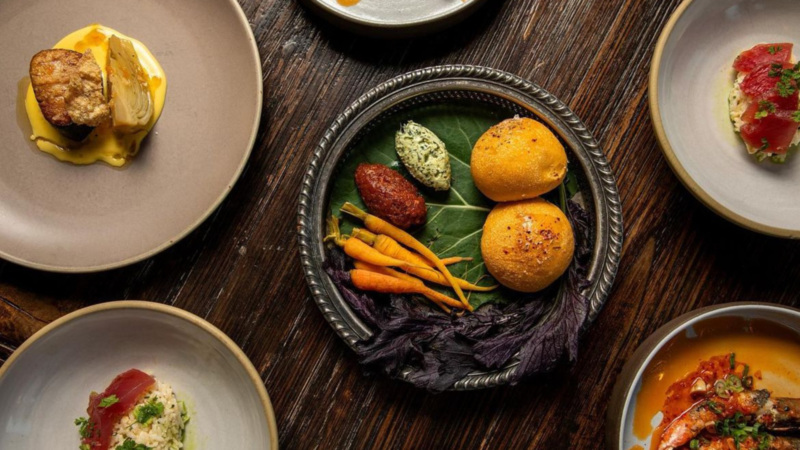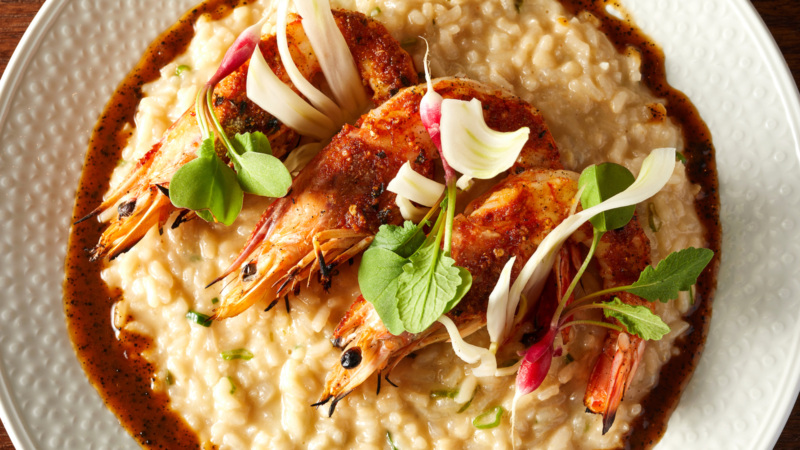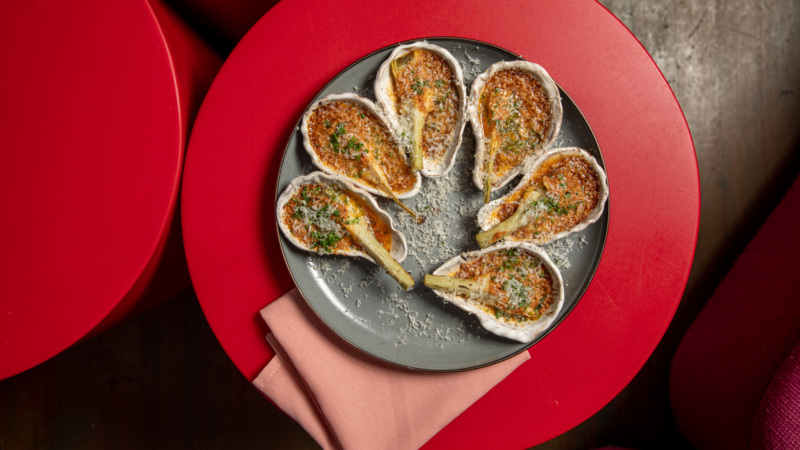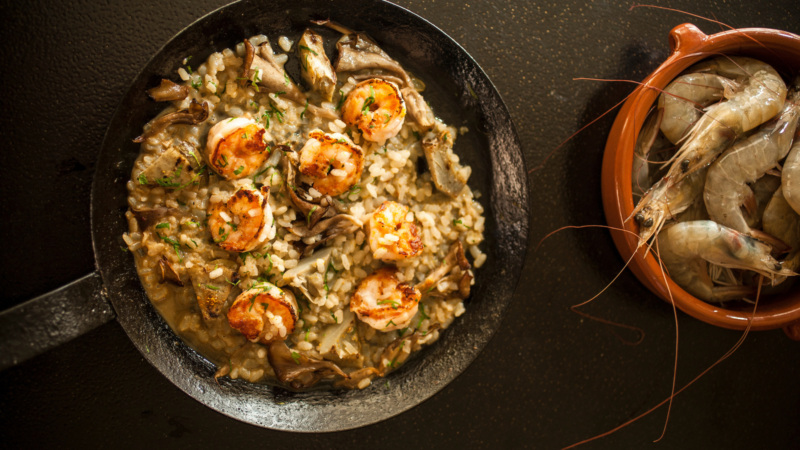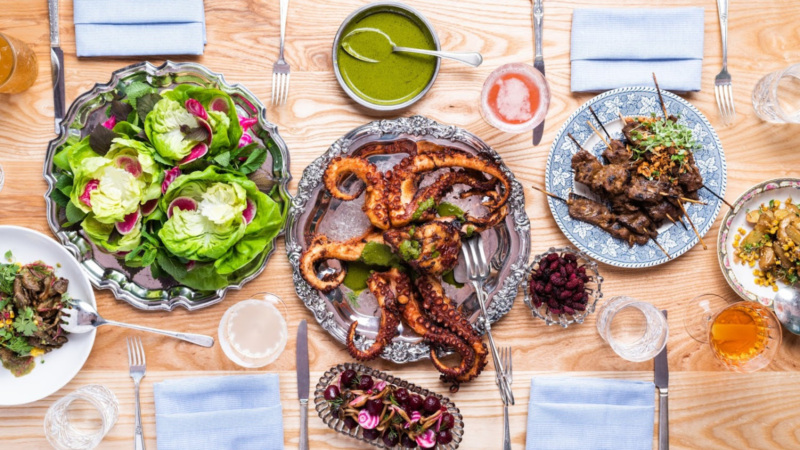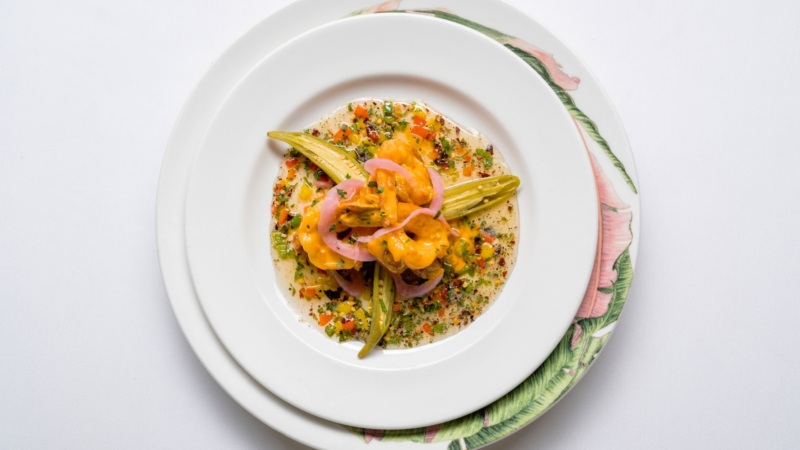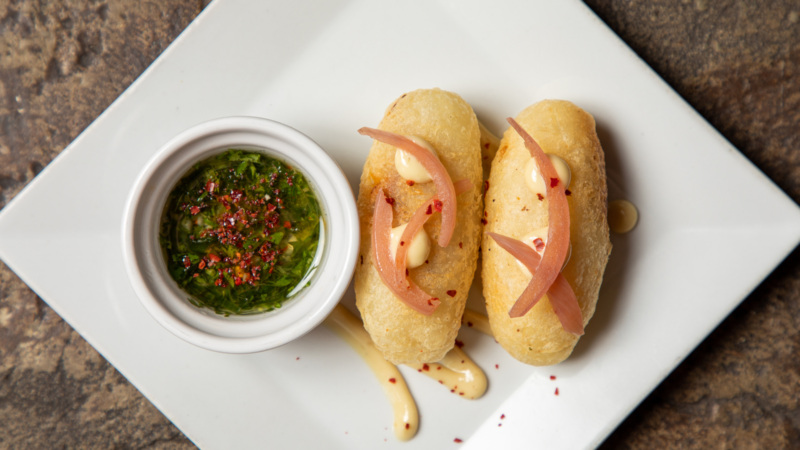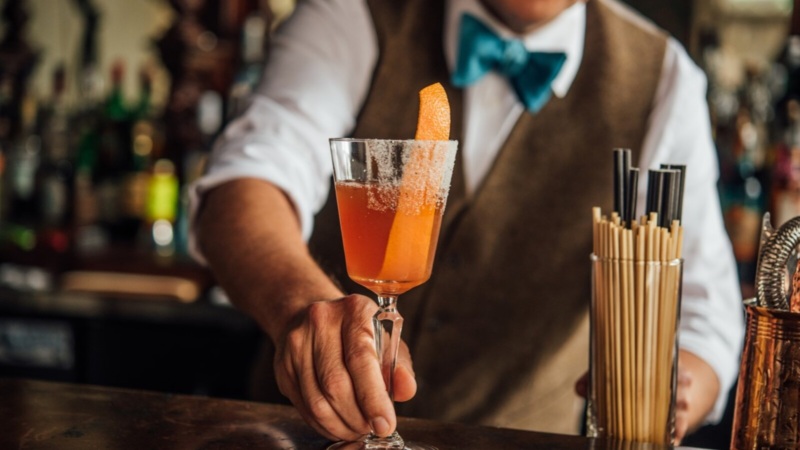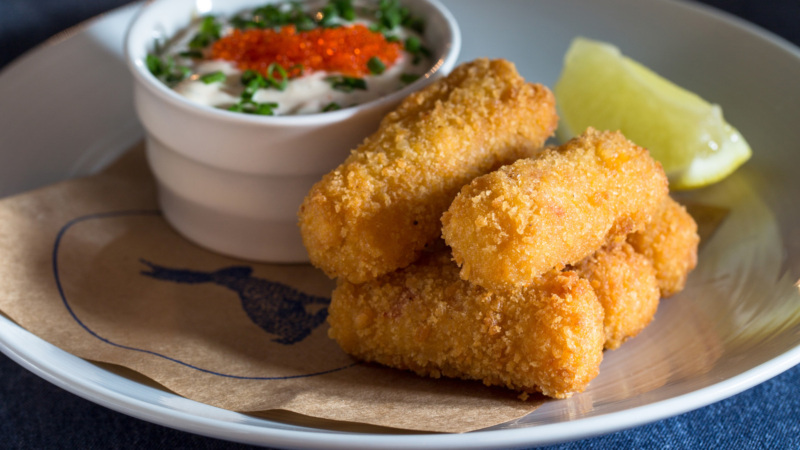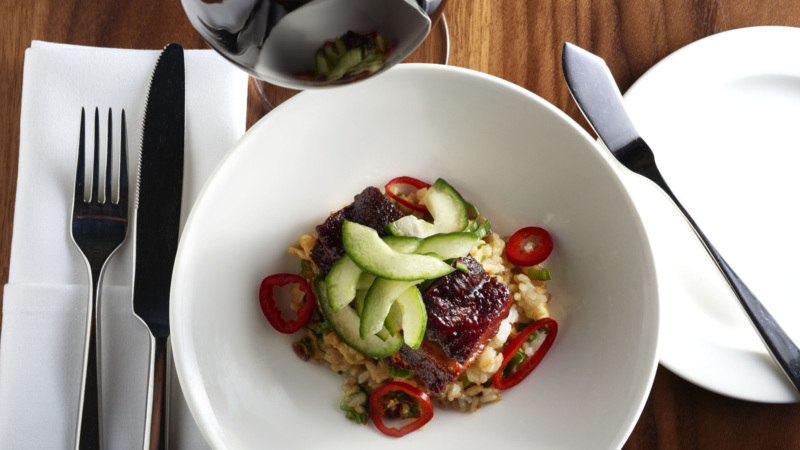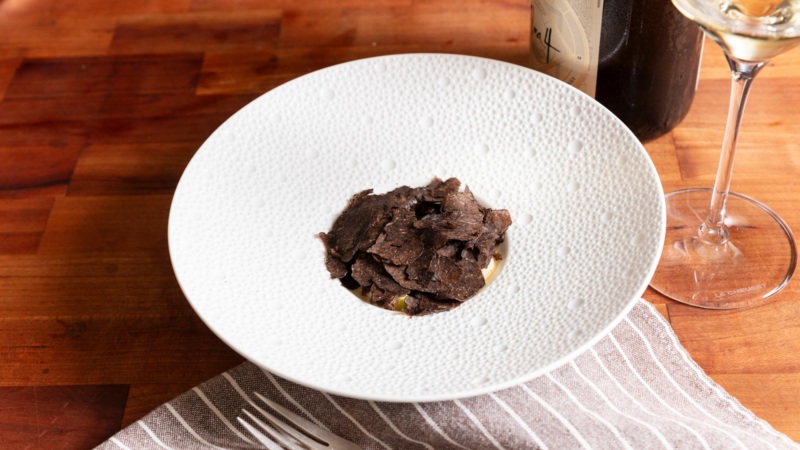
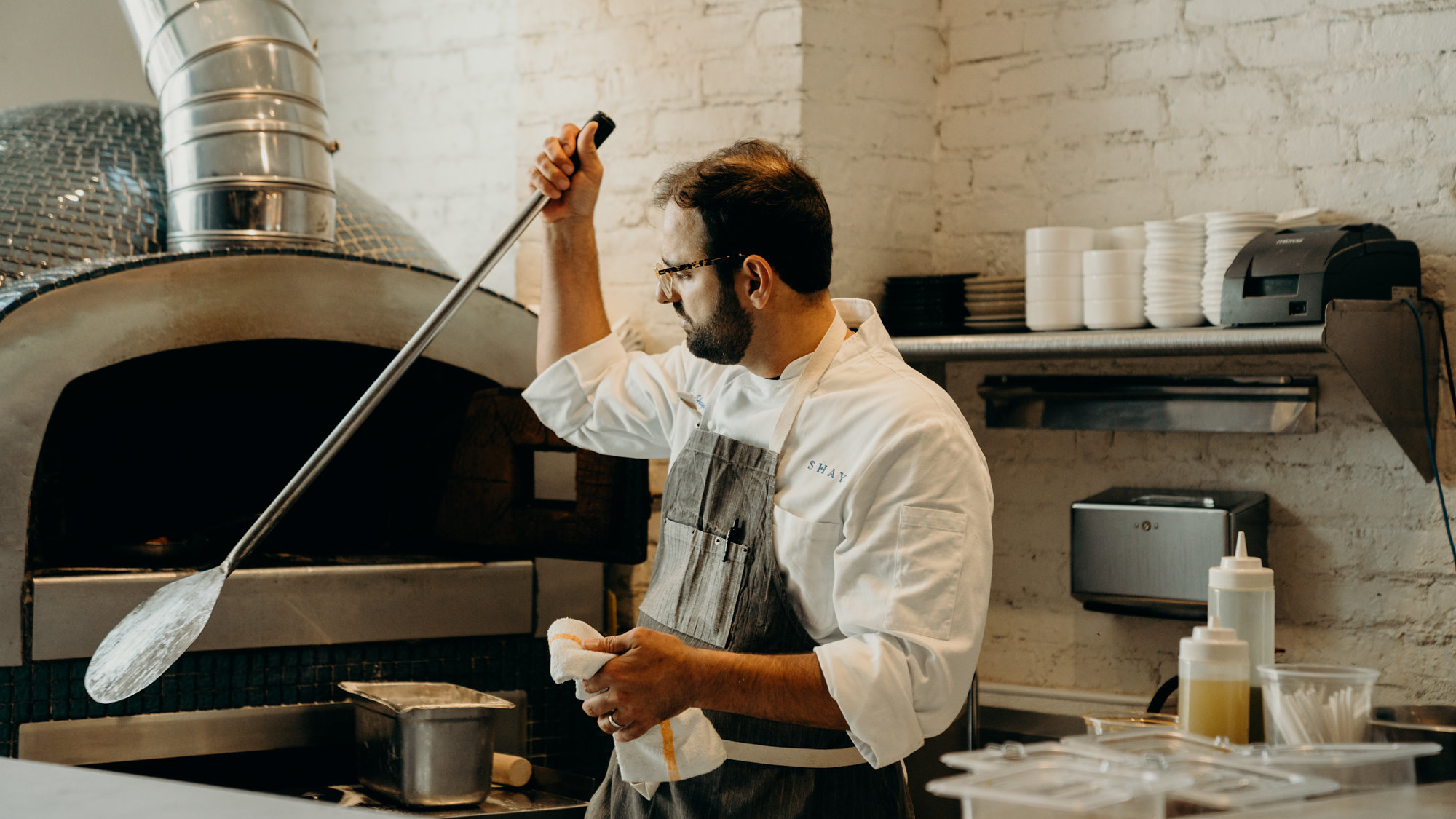
15 Questions with Chef Alon Shaya
Resy: How does New Orleans’ geography affect what you serve?
Alon Shaya: We are always influenced by our location, and look to what’s nearby [to cook], and the season and geographic location have so much to do with it. So, in New Orleans, we are influenced, of course, by the amazing seafood that we have– shrimp, crab, trout, flounder – all of these great things that we get to include in everything we cook. We have all this great crab, you just want to use it; so we make corn-and-crab bisque, crab ravigote, soft-shell crab po’ boys, and crab cakes.
You are cooking in pop-up dinners throughout the country, how do your preparations change by location – what would you serve in New York, for example?
When we go to places like New York, we take notice of what New York has that we can really embrace. So [while we are in New York], it’s going to be right in the summertime – when our summer in New Orleans gets a little too hot, and the great vegetables that we love to cook with die down a bit. In New York, that’ll just be kicking off. So, we are really looking forward to cooking with fresh eggplant, using fresh heirloom tomatoes from the markets, and allowing the produce that’s growing around New York to drive our menu.
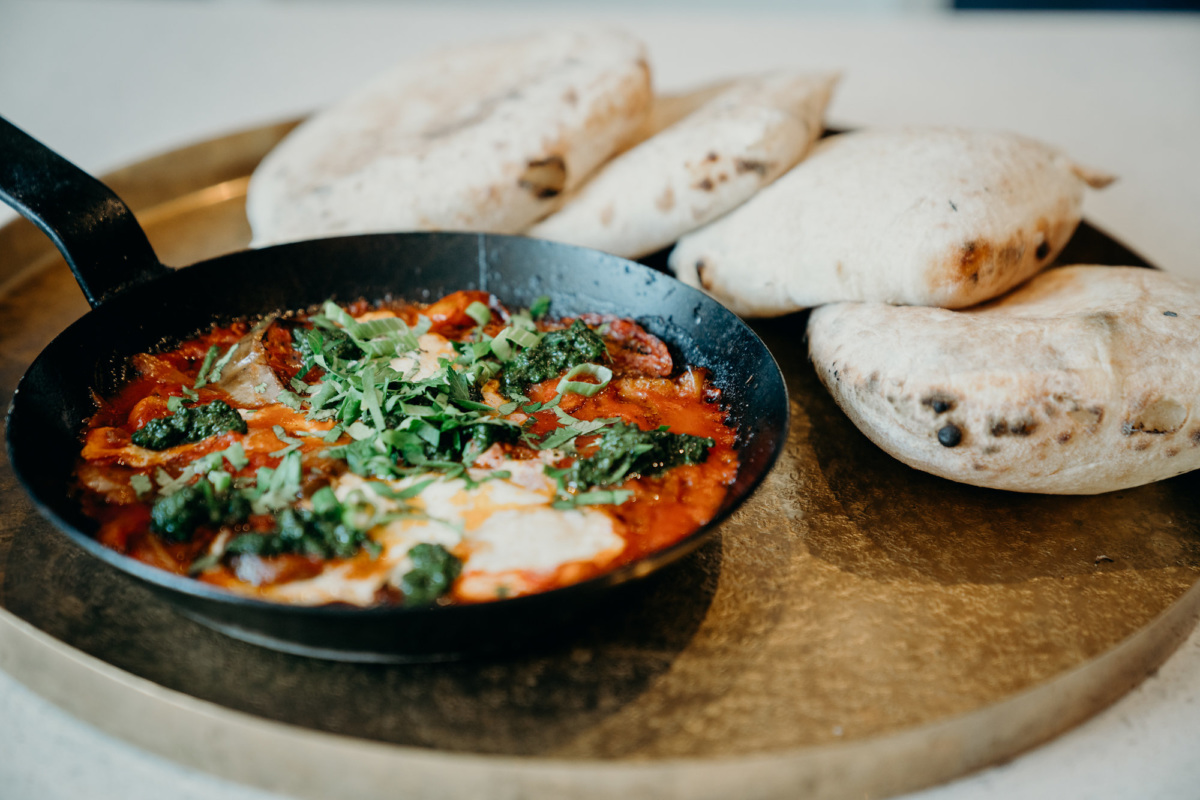
Can you tell us what influences are incorporated into your cooking style?
My life story. That’s kind of how I cook. So, I go from being born in Israel to growing up in Philadelphia, to moving and embracing and falling in love with the South. And so, all of those things touch on everything I do and how I cook. There’s no script to it, it’s just a matter of everywhere I go, I’m influenced by where I was born, by where I live, and by what my mother and my grandmother cooked for me. I’m also influenced by what I see at markets when I travel, or at restaurants in different places when I visit… All of it adds up to this crazy algorithm that will never be solved.
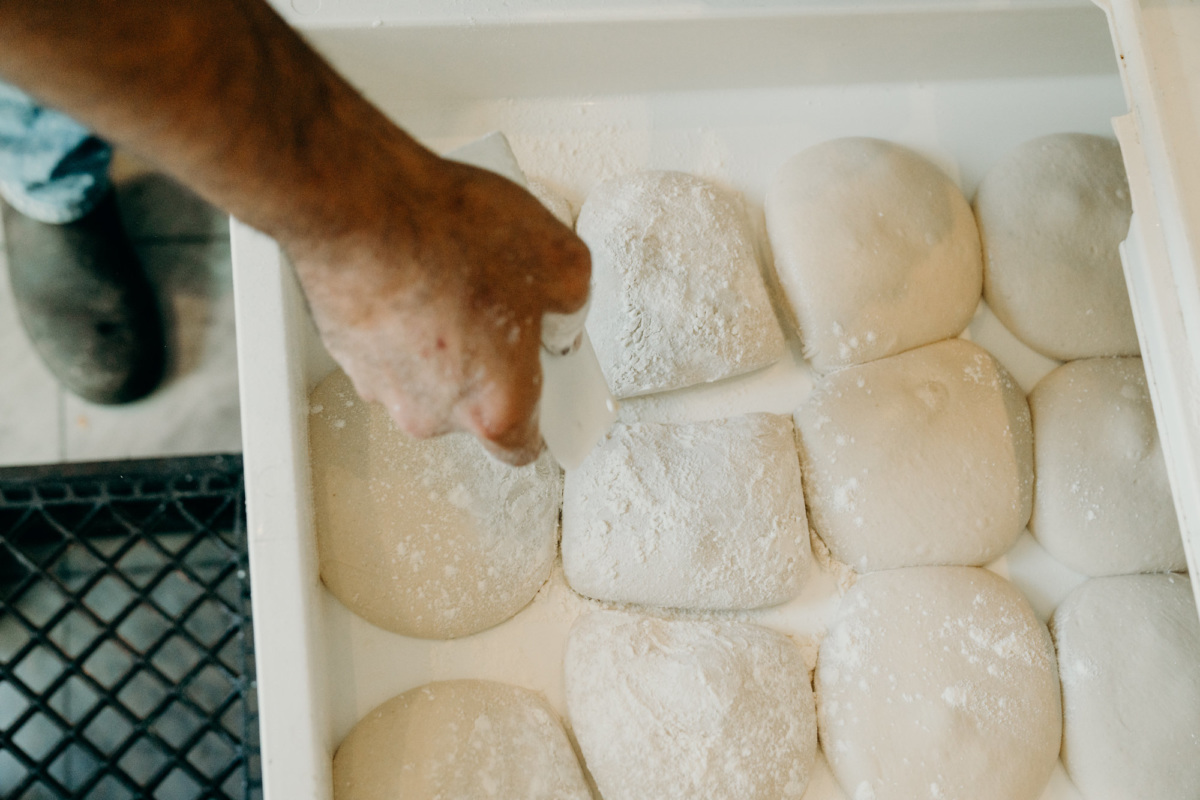
What’s your process for recipe development?
For recipe development, the first thing I ask myself is ‘What’s in season? What do we have locally?’ Then I take all the ingredients I want to cook [for the dish I’m preparing], and I lay out twice as many ingredients as I may actually need to make that dish. So, if I’m making Shakshuka, I might have some green chillies, red chillies, ginger, garlic, shrimp, snapper, tomatoes, and eggs. I’ll lay all those things out and I’ll weigh everything to the gram and I’ll cook. At the end of making the dish, when I have it where I want it, I’ll weigh the remainder of the ingredients and the difference is the recipe.
In spite of Shaya’s success, what have been the biggest challenges?
You know, the biggest challenge is staying still for a little bit. There has been so much going on – a lot of attention – but we have to remember what’s most important: being here with our guests, cooking food, teaching our chefs. So, time management has been a challenge and finding ways to balance life and our success with our reality. The reality is that we have 500 people a day showing up and they’re going to be hungry, so that is our biggest priority.
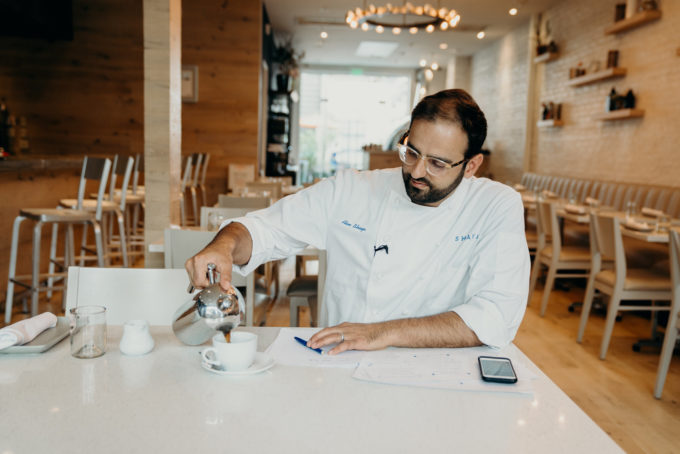
What’s been the most surprising discovery along the way?
I think the biggest surprise would be how much people have really kind of embraced what we do here – not just the guests, but the servers and cooks, too. We have such an amazing team– they love this food, they love the style of service, and they’ve been very excited about it. To me, it was awesome to see so many people really embrace the story (and make it their own), and create something they’re really proud of selling.
How do you stay inspired?
I stay inspired by surrounding myself with people that are smarter and better-looking than me (laughs) – people I really admire, respect, and learn from. I travel a lot and get to see a lot, and it’s always really inspiring eating at restaurants you’ve been studying or reading about, or even exploring a new city. I was recently in Mexico City and it’s incredibly inspiring down there. It’s a completely different culture, a completely different cuisine, but so much of it felt right to me – so much of it felt familiar.
What would you like to try next?
I don’t necessarily have any plans to do anything other than focus on what Shaya’s doing right now, and how we can continue to improve, but I enjoy having some fun by going and doing [the pop-up dinner] events like the Food Lab at the Seaport and the partnership with Resy.
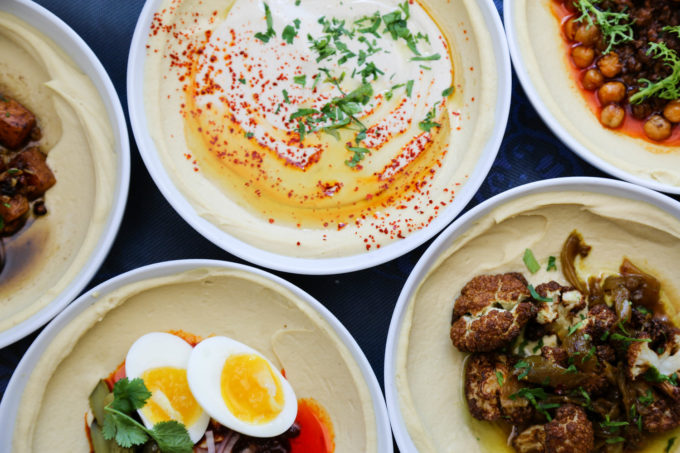
Five ingredients you can’t live without:
I can’t live without: extra virgin olive oil; a good, fresh-milled flour (to make bread, of course); burrata mozzarella (laughs); Louisiana shrimp, crab, and oysters; and Sriracha hot sauce – it’s my guilty pleasure.
First food memory:
My first food memory was my grandmother roasting peppers and eggplant over our gas stove, when she would come from Israel to visit us in Philadelphia, and I was about five years old.
Are there cities you are inspired or enchanted by?
There are several cities that have affected my life. One of those cities is Tel Aviv; I think the energy there and the creativity is a growing organism – like it hasn’t even reached infancy yet, and there is so much more there that is going to continue to happen. Mexico City was really inspiring for me, because of the beauty and the simplicity of the food. A fresh corn tortilla could be so complex, but also so simple. Barcelona has always been a city that has stood out as having a great strong story and food culture. Bergamo, Italy in Citta Alta (the old ancient part of Bergamo) is where I first kind of experienced real Italian food. Then, of course, Parma, Italy – where I staged and apprenticed – had so much influence on everything that I do.
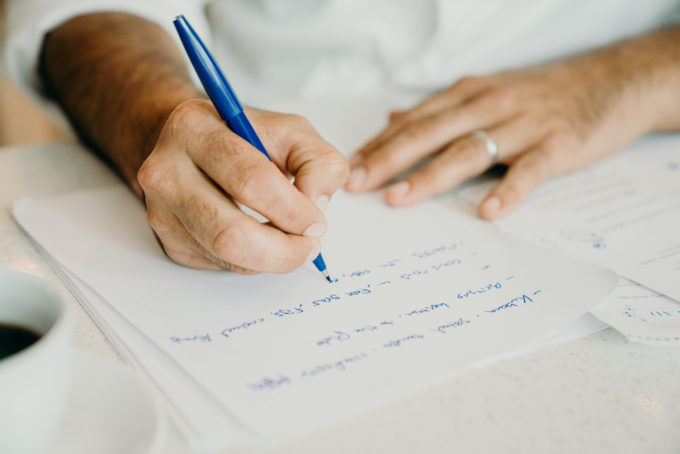
How do you motivate and inspire your staff?
I motivate and inspire [my staff] by allowing the conversation to keep going. We work together as a team, and I like to look at it like a community table. When I sit down with our executive team, we bounce ideas off each other, building and improving on each other’s ideas, and never settling. We are always finding ways to do things better and I think that is motivational and inspirational in its own right; you never get bored and there’s always something else to do.
Tell us what’s on the horizon this year:
One thing that I’m really excited about, when we’re in New York with the Seaport pop-up, is to start talking about a book that I’m about to release in March of 2018 (pre-sale is on now). It’s my entire life story, and it’s called Shaya: An Odyssey in Food, My Journey Back to Israel. It’s 26 short stories throughout my life that chronicle my identity crises, the mentors and the people I had along the way who lifted me up, and how food played in the central part of each of those moments, pivoting me from one place to another. All of the recipes just kind of organically flow from these short stories. I hope that people will find it interesting and find the connection to the food that they’re cooking, and be able to relate it to a story in their own life.
Can you tell us about a pivotal moment in your career?
There are so many moments, but one of the most important moments in my life was cooking through Hurricane Katrina. I was here in New Orleans right after the storm – days after – cooking red beans and rice for people who had been stuck on top of their houses, or people who had been rescuing other people who had been stuck on their houses. The city was destroyed. I was wearing jeans I had been wearing for a week, standing in the parking lot of a Walmart with a propane tank, cooking vegetarian red beans and rice. There was no meat and no produce, so it was all it could be.
It wouldn’t be the way that I would make red beans and rice today – when I have access to the food around me – but then there was nothing available and that was one of the most important meals that I’ve ever cooked in my life.
And it reminded me why I began cooking – which was to put a smile on people’s faces and to bring comfort to people and I kind of reconsidered the entire trajectory of my career at that point.
That’s when I decided that I needed to go and apprentice in Italy and learn from grandmothers who have been perfecting the same dish their entire life. I wanted to simplify everything I knew about food at that point. So, after a few years rebuilding the city, I went to Italy to apprentice and came back to open Domenica restaurant. It was all because I had that moment during Katrina that reminded me what it was about food that I loved so much.
—
Taste it for yourself. Grab a seat.
From July 30th-August 12th, Chef Alon Shaya will be bringing his James Beard Award-winning cooking to New York for Seaport District NYC Food Lab pop-up. Purchase tickets here.
Discover More

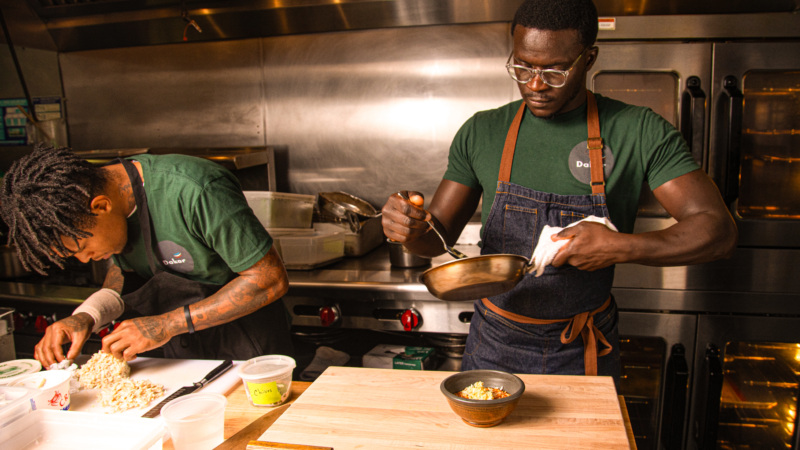
Stephen Satterfield's Corner Table

